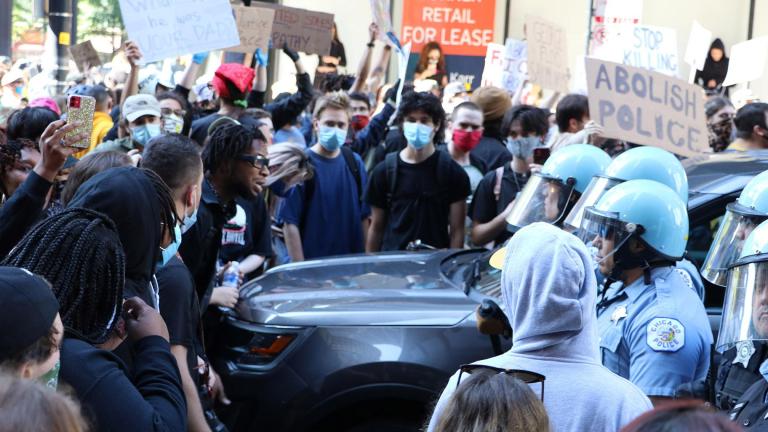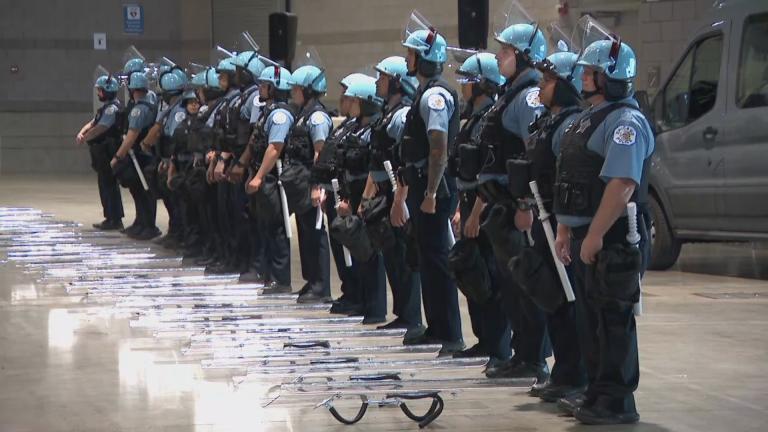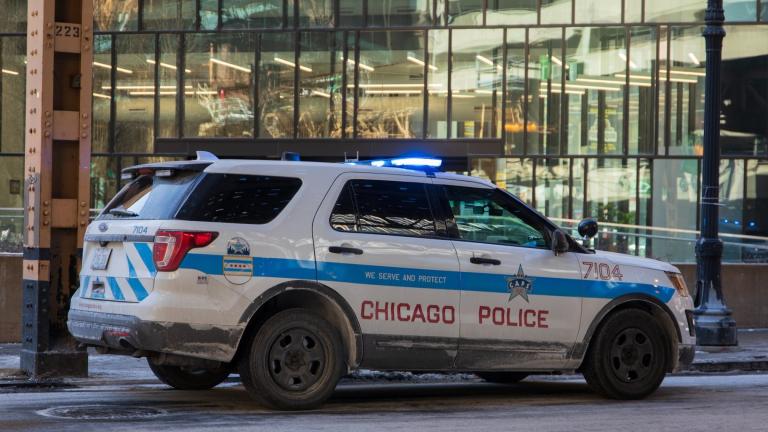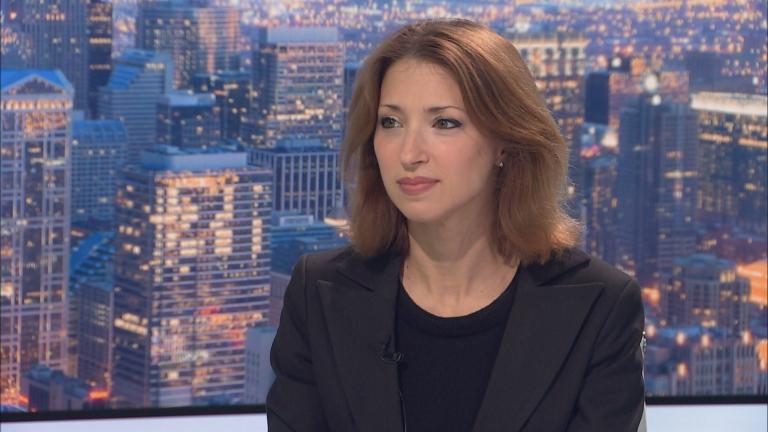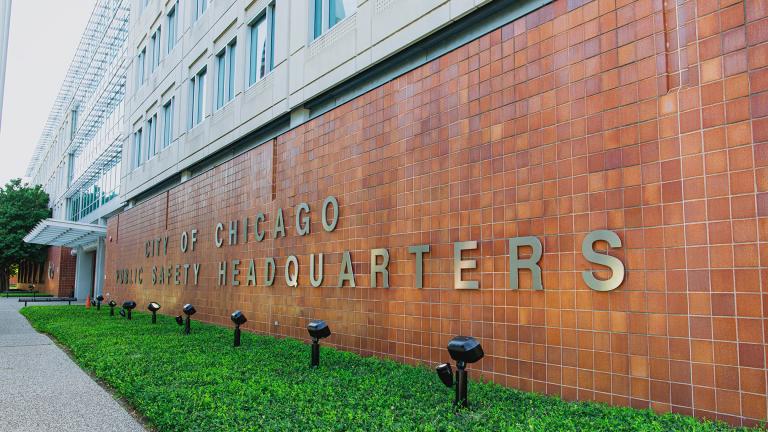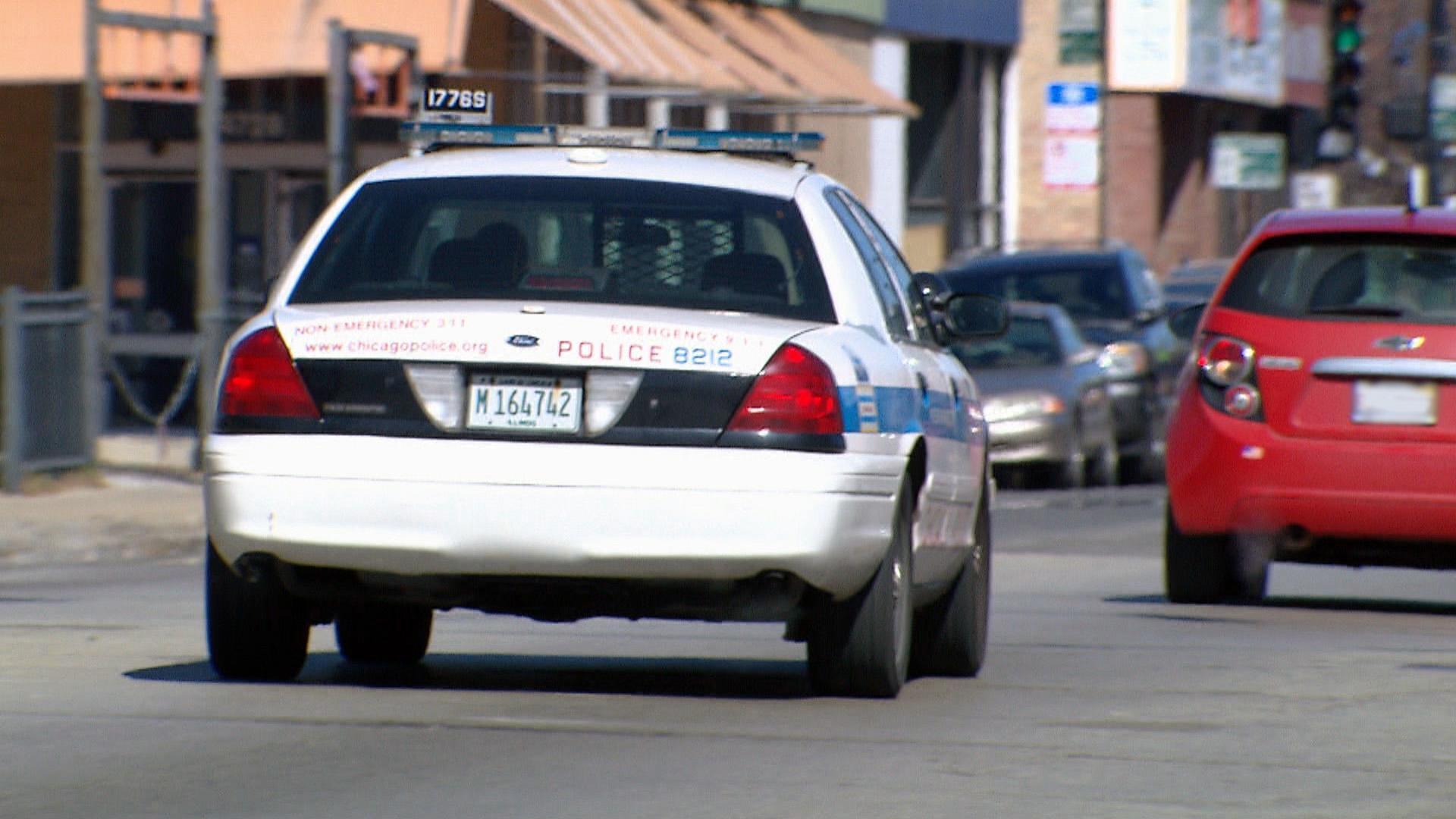 (WTTW News)
(WTTW News)
A court order requiring the Chicago Police Department to change the way it trains, supervises and disciplines officers should not be expanded to include traffic stops, eight alderpeople told the federal judge overseeing the push to reform the department.
Instead, the city’s new police oversight board, the Community Commission for Public Safety and Accountability, “should be given an opportunity to fulfill its duty and develop a policy to reform traffic stops in our city,” according to the letter signed by Alds. Daniel LaSpata (1st Ward), Desmon Yancy (5th Ward), Michael Rodriguez (22nd Ward), Byron Sigcho-Lopez (25th Ward), Jessie Fuentes (26th Ward), Rossana Rodriguez Sanchez (33rd Ward), Andre Vasquez (40th Ward) and Leni Manaa-Hoppenworth (48th Ward.)
WTTW News was the first to report that Chicago Police Supt. Larry Snelling agreed to allow a federal judge to oversee the department’s use of traffic stops in response to a recommendation from the independent monitoring team charged with enforcing the federal court order known as the consent decree amid widespread outrage over the department’s actions.
If U.S. District Court Judge Rebecca Pallmeyer agrees as expected to expand the consent decree, the police oversight board, known as the CCPSA, would be prohibited by city ordinance from tackling the hot-button issue in the wake of the decision by four Chicago Police officers to fire 96 bullets in 41 seconds during a West Side traffic stop on March 21, killing 26-year-old Dexter Reed.
More than 51% of all drivers stopped by police officers in 2023 were Black, and nearly 31% of drivers pulled over by Chicago police officers were Latino. By comparison, just 13.6% of drivers stopped by Chicago police were White, according to a report from Impact for Equity, a nonprofit advocacy and research organization that has helped lead the push for police reform.
Approximately 73% of the traffic stops made by Chicago police officers in 2023 were prompted by improper registration or an equipment violation, according to the report.
Just 2.2% of those stops led to an arrest, and a gun was recovered in just 0.5% of stops, according to the report. Approximately 4.4% of stops led to a citation, according to the report.
“We are troubled by the possibility that the consent decree would effectively cut off this new and promising community oversight mechanism by incorporating traffic stops into the consent decree,” the alderpeople wrote. “Surely, there must be another solution where all of those invested in addressing this dire problem can meaningfully and openly collaborate to ensure we change CPD’s ineffective and harmful practice.”
Six permanent members of the CCPSA were confirmed last month by the Chicago City Council, and are set to take office June 27. One of Mayor Brandon Johnson’s nominations remains stalled amid concerns that he works as an aide to Manaa-Hoppenworth.
The complaints lodged by the eight alderpeople, who are all members of the City Council’s Progressive Caucus and allies of Mayor Brandon Johnson, join an objection filed by a coalition of police reform groups who sued the city over CPD’s use of traffic stops in June 2023, including the American Civil Liberties Union of Illinois.
“Moving oversight (of traffic stops) under the consent decree – without a transparent plan for immediate and accountable transformation of CPD’s practices and policies – does not meet the community’s need for urgent change,” said Alexandra Block, director of the Criminal Legal System and Policing Project at the ACLU of Illinois who represents the Black and Latino Chicagoans who sued the city.
The judge in that case ruled there is enough evidence that the city intentionally discriminated against Black and Latino drivers on the basis of race, and that the mass traffic stop program unlawfully burdens Black and Latino drivers disproportionately, for the lawsuit to proceed, court records show.
As Pallmeyer considers whether to expand the consent decree to include traffic stops, the plaintiffs in the case targeting CPD’s use of traffic stops should be allowed to “participate in proceedings to determine whether the consent decree should be modified so they are not crowded out of any discussions about ways to end CPD’s mass traffic stop program,” according to a request filed by Block.
The city is in full compliance with approximately 7% of the consent decree after making “incremental progress” between July 1 and Dec. 31, according to the latest report from the monitoring team.
“CPD has moved at a snail’s pace in making change under the Consent Decree – something which already frustrates members of the community across Chicago,” Block said. “It is simply unacceptable to allow their recalcitrance to be extended to traffic stops and to eliminate the voices of our clients in this process.”
If Pallmeyer agrees to expand the consent decree’s scope to include traffic stops, it will be the third time the 5-year-old court order has grown in response to widespread public outrage caused by the actions of Chicago police officers.
After the monitoring team found CPD officers committed far-reaching misconduct during the protests and unrest triggered by the police murder of George Floyd on May 25, 2020, the consent decree added 17 requirements, ranging from new rules governing efforts to prepare for large protests and civil unrest to requirements that officers’ body-worn cameras be reviewed after incidents.
In March 2022, the consent decree again expanded to include CPD’s use of search warrants. CPD’s use of search warrants had been in the spotlight since December 2020, when CBS2-TV aired video of officers raiding the home of Anjanette Young, a social worker who was handcuffed while naked during a botched raid in February 2019.
Contact Heather Cherone: @HeatherCherone | (773) 569-1863 | [email protected]


